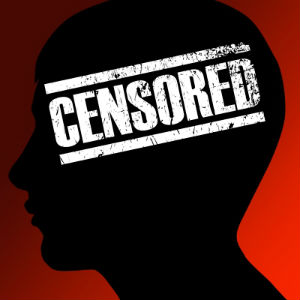Theresa May is wrong on extremism
And Christians should care, writes Jonty Langley
Theresa May made her latest speech as Minister for Irony this week, as she invoked tolerance, freedom of speech and diversity while announcing that a future Conservative government would introduce anti-extremist laws that can only be described as, well, extreme.
Britain has no shortage of anti-terror laws that make expressing an unpopular opinion dangerous (particularly if you're a Muslim), but the language being used by the Home Secretary and by Prime Minister David Cameron yesterday has revolved around people who have not actually committed any crimes but who hold and express extremist views.
 |
|
"Human Censored" by Idea go/freedigitalphotos.net |
The government would, under such a system, be able to define what views were "acceptable" and those which were not. People expressing ideas deemed "extremist" could be prevented from attending rallies or being able to argue their case on broadcast or social media.
Thought-crime, under such a regime, would be a reality. Simply holding and expressing a view that made people feel "distressed" or "afraid" could be grounds for censure. Whether you intended to or not, if your views upset people, you could find yourself on the wrong side of the law.
With a stunning lack of awareness, Mrs May claimed that the new measures were aimed at protecting people from "intolerant attitudes shown to people of different beliefs", while proposing a system in which some beliefs would be illegal simply by virtue of being unpopular.
All this might sound fine to those of us who trust our governments implicitly and who believe that they only ever want what's best for us and always get things right. It might also sound fine to those who see all Muslims (who will feel the most at risk every time they utter a critical word about our society) as enemies. It may even sound reasonable to those whose views are routinely in the centre of popular opinion. Free speech is fine, you might say, but some opinions are just wrong and should be stamped out.
But freedom of speech and freedom of belief are not there to protect the majority and the middle ground. If most people agree with you, you need no protection. It is the critics, the minorities and those with unpopular views who enjoy protections in a truly liberal democracy that they would not enjoy under a tyrannical caliphate.
Theresa May says that extremist ideas must be "confronted and defeated". But, the way we confront and defeat ideas is by exposing them, debating them and showing them to be hollow and untrue. What the Home Secretary is proposing is simply silencing them, and, worse, making people afraid to express them. It is "winning" an argument by putting your hand over the mouth of your opponent or by locking them out of the room.
A liberal, tolerant society depends on the freedom to believe and say things that people might disagree with. Things, even, that may make people feel distressed, angry, or even afraid. None of us have the right to everyone always agreeing with us or affirming our beliefs.
Christians should oppose legislation that makes thought and its expression a crime based on its content, not just because it will make our world less tolerant, but because we might be next. Today, the government and the majority want to make it ever easier to silence Muslims and dictate the political and religious beliefs they may hold. Is it really so hard to imagine them turning on Christians? Are we really that confident that our own beliefs and views will not come under similar attack?
And even if they don't, we would do well to remember our history: more than 400 years ago one of the English founders of the Baptist movement published a book which contained the first plea for universal religious freedom in the English language. Baptists have continued this tradition ever since, so do we really want to live in a country where freedom and tolerance are concepts that only mean anything if you agree a predefined set of acceptable views?
If we stand for justice, we must reject such foolishness and stand for freedom - even if it makes us uncomfortable.
Jonty Langley was once a columnist for The Baptist Times. Now he writes for a number of Christian publications. www.twitter.com/jontylangley
Baptist Times, 02/10/2014